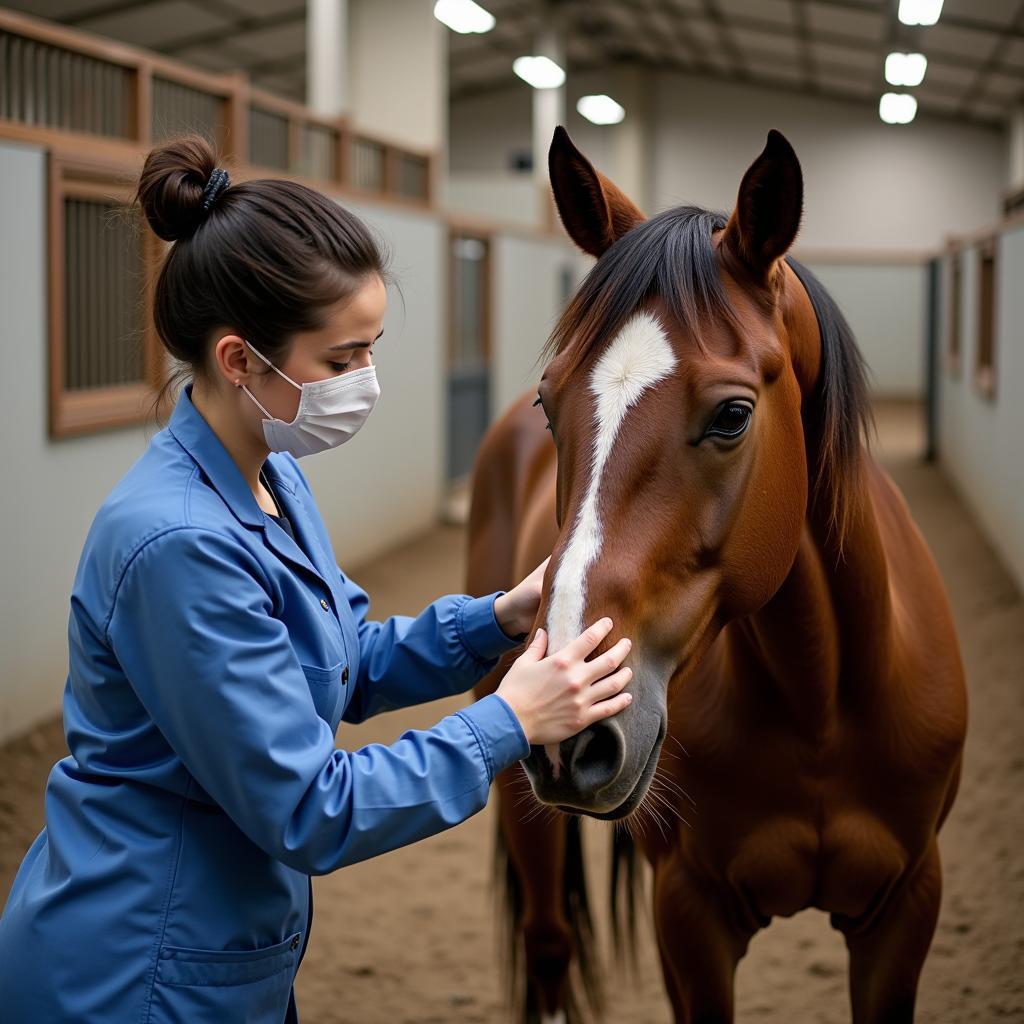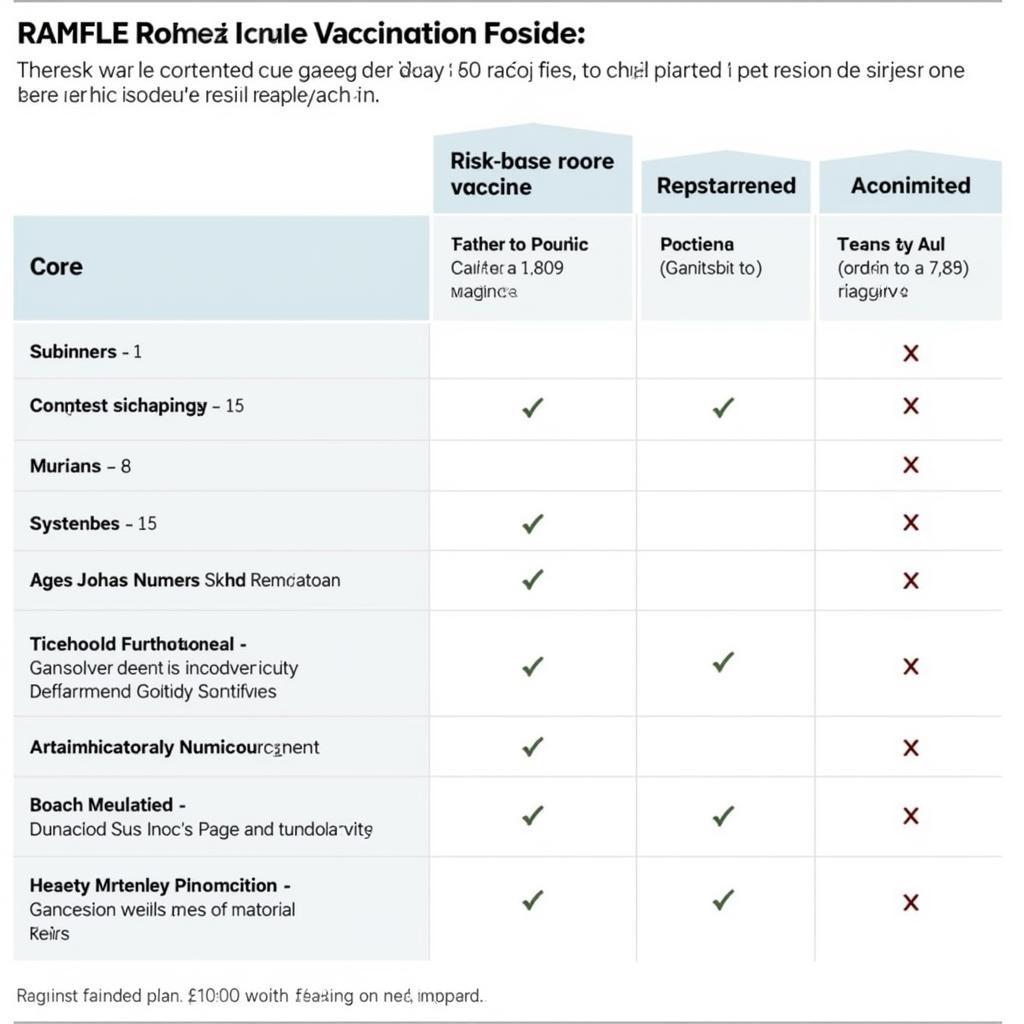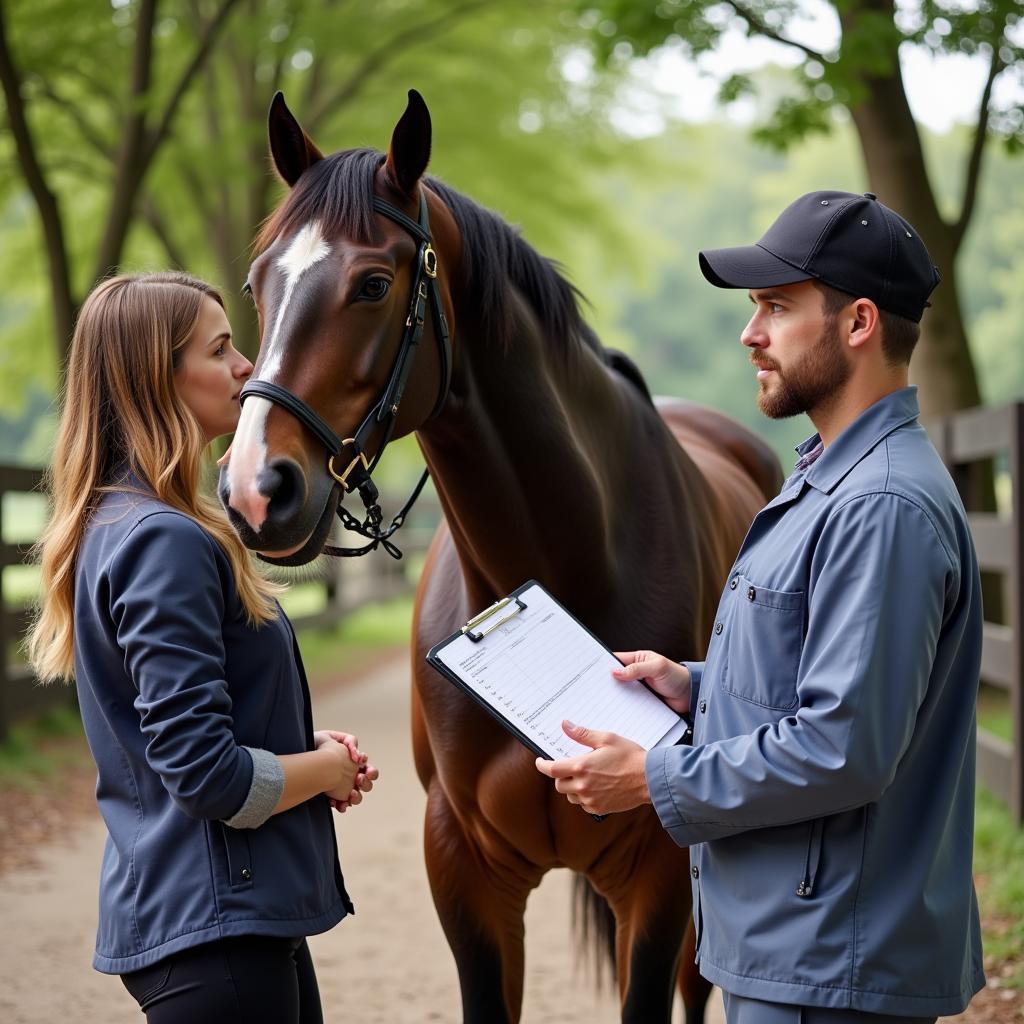Owning a horse is a rewarding experience, but it comes with responsibilities, including safeguarding their health through proper vaccination. A comprehensive Horse Vaccination Chart acts as your guide to keeping your equine friend protected from dangerous diseases. This guide will walk you through everything you need to know about horse vaccinations, from understanding the types of vaccines to creating an effective vaccination schedule.
Understanding the Importance of Horse Vaccinations
Just like humans, horses need protection from a range of viruses and diseases. Vaccinations help their immune system build up defenses against these potential threats. A well-vaccinated horse is not only healthier but also less likely to spread diseases to other horses.
Types of Horse Vaccines
Horse vaccines are categorized into two main groups:
- Core vaccines: These are considered essential for all horses due to the widespread prevalence and severity of the diseases they protect against. Core vaccines generally guard against:
- Tetanus
- Eastern and Western Equine Encephalomyelitis (EEE/WEE)
- West Nile Virus (WNV)
- Rabies
- Risk-based vaccines: These are recommended based on your horse’s individual risk factors, such as geographic location, exposure to other horses, and age. Common risk-based vaccines include:
- Equine Herpesvirus (EHV)
- Equine Influenza
- Potomac Horse Fever (PHF)
- Strangles
- Botulism
 horse receiving vaccination
horse receiving vaccination
Creating a Horse Vaccination Schedule
The timing of your horse’s vaccinations is crucial for their effectiveness. Working closely with your veterinarian is key to developing a personalized vaccination plan tailored to your horse’s specific needs and risk assessment.
- Initial vaccinations: Foals typically receive their first set of vaccinations around 6 months of age, followed by boosters a few weeks later.
- Annual boosters: Most core vaccines require annual boosters to maintain immunity.
- Risk-based schedule: Your veterinarian will determine the frequency of risk-based vaccines based on your horse’s individual circumstances.
Factors Influencing Your Horse’s Vaccination Schedule
Several factors can influence your horse’s vaccination needs:
- Age: Young and senior horses have different immune responses and may require adjusted vaccination schedules.
- Breed: Certain breeds are genetically predisposed to specific diseases.
- Geographic location: Disease prevalence varies by region, impacting risk-based vaccine recommendations.
- Travel: Horses traveling to competitions or shows may require additional vaccinations or boosters.
- Health status: Horses with underlying health conditions might need a modified approach to vaccination.
 sample equine vaccination chart
sample equine vaccination chart
“It’s essential to understand that every horse is unique,” says Dr. Emily Carter, DVM, an equine veterinarian with over 20 years of experience. “There’s no one-size-fits-all approach to vaccination. Open communication with your vet is crucial to determine the best vaccination strategy for your equine companion.”
Recognizing Adverse Reactions: When to Call the Vet
While horse vaccines are generally safe, adverse reactions can occasionally occur. Most reactions are mild, such as swelling or soreness at the injection site, but it’s vital to be aware of potential signs of a more serious reaction, including:
- Fever
- Loss of appetite
- Lethargy
- Difficulty breathing
- Swelling in the face or limbs
- Hives
If you notice any unusual symptoms in your horse after vaccination, contact your veterinarian immediately.
 horse owner consults with veterinarian
horse owner consults with veterinarian
Horse Vaccination Records: Keeping Your Horse Healthy
Maintaining accurate and up-to-date vaccination records is crucial. These records not only serve as proof of vaccination but also help you and your vet track your horse’s vaccination history and schedule future boosters.
Conclusion: Prioritize Your Horse’s Health with a Proactive Approach
A well-structured horse vaccination chart is an invaluable tool for responsible horse ownership. By partnering with your veterinarian, staying informed about potential risks, and following a tailored vaccination schedule, you can provide your horse with the best protection against diseases and ensure a long and healthy life for your equine companion. Remember, prevention is always better than cure!
FAQs: Common Questions About Horse Vaccinations
-
What is the most important horse vaccine?
All core vaccines are critical, but Tetanus is often considered the most important due to its prevalence and severity. -
Can horses be vaccinated while pregnant?
Some vaccines are safe for pregnant mares, but it’s essential to consult your vet to determine the safest course of action. -
How long does it take for a horse vaccine to be effective?
It generally takes about 2 weeks for a horse’s immune system to build up sufficient immunity after vaccination. -
Where do horses get vaccinated?
Vaccinations are typically administered intramuscularly, usually in the neck or hindquarters. -
Can I buy horse vaccines and administer them myself?
It’s strongly recommended to have a veterinarian administer all vaccines to ensure proper dosage, technique, and to address any potential adverse reactions.
Need More Information on Types of Horse Riding?
For further insights on horse care and other equestrian topics, explore our comprehensive resources on types of horse riding.
Have Questions or Need Assistance?
Our dedicated team at Justus Horses USA is here to support you and your equine partner’s wellbeing. Contact us at:
Phone: 0772127271
Email: [email protected]
Address: QGM2+WX2, Vị Trung, Vị Thuỷ, Hậu Giang, Việt Nam.
We offer 24/7 customer support.